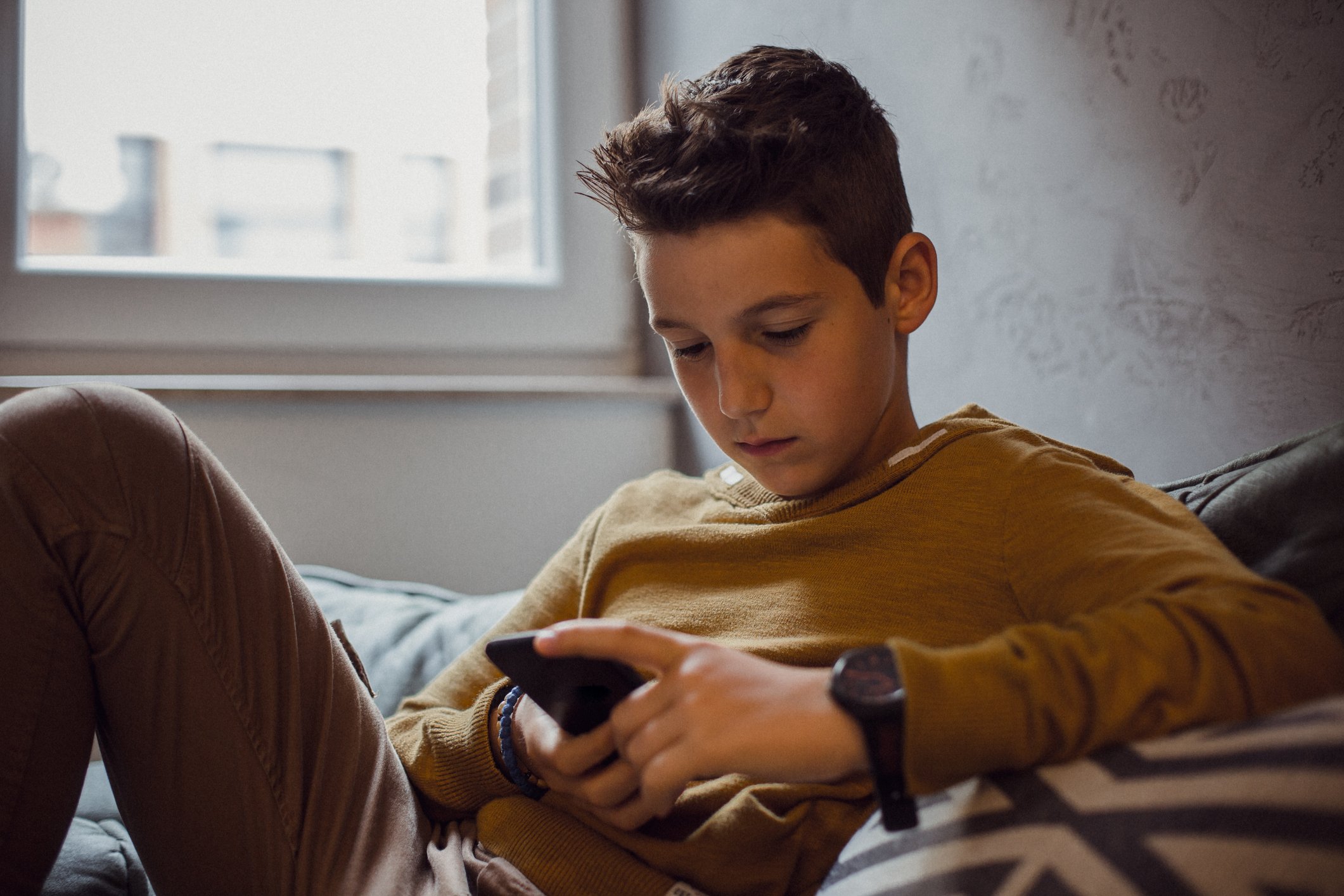
If you have a child of any age and you’ve taken a cell phone or device away from them, you’ve seen what can happen. Hell hath no fury like a kid who is getting their device taken away from them, regardless of the reason.
The first time I took my son's phone away from him was when he was 12, and I couldn’t believe my eyes or ears. He cried for a long time and threw a tantrum unlike any other I'd ever seen him throw. He seemed almost depressed for days, and it took a good week before he was back to himself.
It was then when I realized my son seemed happier without the phone
He was outside riding his bike again. He was talking more. He didn’t seem as anxious.
That was over five years ago. What I realize now about what I had then dismissed as my son having an intense personality, was something more. In fact, my two younger kids who are a lot more laidback than my oldest, reacted the same way when I’d limit their screen time. I literally felt like they turned into different people and would go through great lengths just to get a dose of electronics.
I’ve been telling them for some time that I’m concerned for their well-being and their future. At 17, 15, and 14, my kids spend most of their time on their phones. I’ve told them I’ve done my research. They know I’m a writer and I’ve talked to doctors and psychologists about what devices are doing to their brains and emotions.
It doesn’t matter though — they don’t take my word for it
So, naturally, when I saw there was a documentary on Netflix about the very thing I’ve been talking to my kids about, The Social Dilemma, I knew we had to watch it.
Since it was coming from people who used to work at companies like Instagram, Facebook, and Pinterest, I knew their words would have more clout than mine. Or at least I hoped.
I was right. All of my kids thought the things that were said about how the apps were designed to get them low-key hooked was pretty crazy. Right now, they’re almost too deep into their device obsession to see that truth. But when they heard it coming from people whose job it was to literally get people addicted to their app, it definitely made them take a closer look at how their phones were making them feel.
It was creepy to them to feel like they were “being spied on” in order to keep them engaged in their phones.
To me, though, it was petrifying
I’ve been well aware I feel different — more depressed and anxious — since owning my smart phone. I’m old enough to have memories of not having this in my life. I remember the days before Instagram and being able to go to Google whenever I wanted. I grew up in a time when you had to wait for your favorite show to come on once a week or get a phone call on the rotary phone from a friend. I had a wonderful, non-distracted life to compare this current state to.
I didn’t compare myself to the hundreds of people — most of them total strangers — I see on the internet each day, nor did I sit and aimlessly scroll for hours. I played, read, wrote, and spent hours daydreaming. I looked forward to seeing people in real life and having real connections. I made actual plans.
It can’t be a coincidence that all three of my kids don’t feel the need to go out and socialize, or don’t have a strong drive to leave their room. In their minds, staying home in their rooms to themselves isn’t missing out — not having their phones and having to spend time with family or friends is missing out.
It’s a sad truth we all have to face
I do think watching this film helped them understand it more, but if I’m being truly honest, they aren’t putting their phones down much more than they were before.
But I’m not giving up. I’m hopeful more eye-opening shows like this will be made so future generations can learn to put some space between themselves and the apps. Perhaps the first step will be to lead by example — one app at a time.



